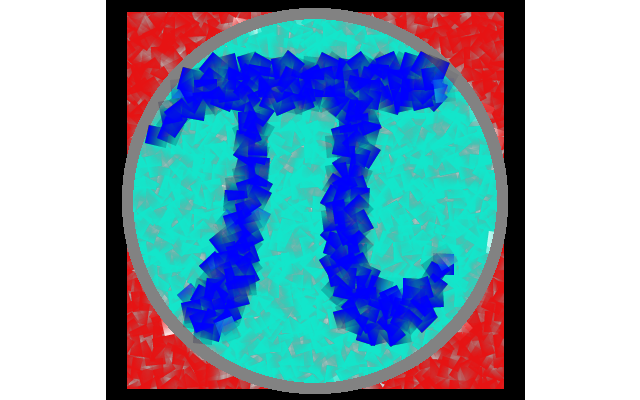One of the many reasons I am a physicist is the influence of my father. I had previously commented on the role my mother’s father, “pop-pop”, played on my choice to pursue science as part of my life. However, the role my father played in engaging me in challenging questions, never letting me settle for less in math and science, cannot be understated.
I remember several things in my life that kicked me in the direction of science. The first was my inability to perform in mathematics, a fact which came to an early head in second grade. It’s amazing that I remember this, but given the role that this memory has played in my life I should mention it. In second grade, there was a chance for students to take a 20-question math test and advance to a higher level of math. You had to get something like 19/20 questions correct in two minutes of test time. They were all simple arithmetic, but to a young kid like me fresh out of the damn womb, this was rocket science. I didn’t do well on the practice, so my father made up a whole bunch of 20-question tests, and taught me one of the most important lessons of my life: if you can’t solve a problem, move on and solve the others; come back to the unsolved problem last.
It took me another 15 years to really understand that lesson. My father referred to my inability to move on from a problem as the “monkey on my back”, an image that recurred throughout my life with mathematics. Incidentally, given that I didn’t learn the lesson well I didn’t get 19/20, but somehow got moved up in second grade math. However, the fact that much later I chose to take pre-algebra instead of algebra in middle school came back five years later to haunt me at Yale.
Another pivotal incident occurred during a summer break. I think it was in high school. I don’t recall what precipitated the event, but one night my father came upstairs to my room and presented me with a 90-page book on Einstein’s theory of relativity. He told me to read it – it would only take one night – and that we could talk about it afterward. Reading that book was a life-changing experience for me. I had never encountered relativity before, but the ideas were so simple and the implications so profound that I was immediately taken by the physics. I’ve never recovered from the revelation that space and time are not constants and that light is the same for all observers.
Sometime later, my father challenged me with a question. “Does this make sense to you: *light is both everywhere and nowhere at the same time*?” I thought about it for a moment, and said yes. But my father did not accept that, saying that I should think about it much longer, and that perhaps one day it would make sense to me. At the time, I wasn’t eveb sure my dad knew what he was talking about. However, as the years went by and I considered relativity again as a graduate student, it finally dawned on me that light, once created, experiences infinite contraction of space and infinite dilation of time. That is, the universe seems to be only the space that the photon occupies, while time seems never to pass for the photon. This paradox for objects moving at the speed of light was, at least, perhaps part of what my father was saying: light fills all space, but with no time passing it’s as if it goes nowhere. Light is everywhere, and nowhere, at the same time. Whether this was what my father intended or not, planting in my head the long, patient drive to seek the answer was the result.
It warms my heart to see my father rewarded by “the system” for all the effort he put into me, and his hundreds of chemistry students, over the decades. As a teacher in an advanced UCONN program for high school students, my dad was recently recognized for his outstanding teaching in the program (which takes college freshman chemistry into the high-school classroom and forces students to perform at the same level at their college counterparts). I just found the
“newsletter from UCONN”:wp-content/uploads/ECE_newsletter_summer_2006.pdf announcing the award, as well as the following great photo and quote from a former student of dad’s. I hope that this little blog entry does as much in all of its wordiness to sum up the power of my father to challenge and inspire a young mind.

Steve Sekula teaches UConn ECE Chemistry at Daniel Hand
High School. Steve is described by one of his students as “the best
teacher I have ever been lucky enough to study with, one who
genuinely cared about the success of his students and sacrificed his
time in order to provide a better learning experience… Mr. Sekula
loves what he does, and his devotion to chemistry and his students
shines through in every day of class. I am so grateful to have had
Mr. Sekula. I know he prepared me extremely well for college.”
UConn ECE is incredibly lucky to have an instructor like Steve.
And I’m incredibly lucky to have been born his son.



